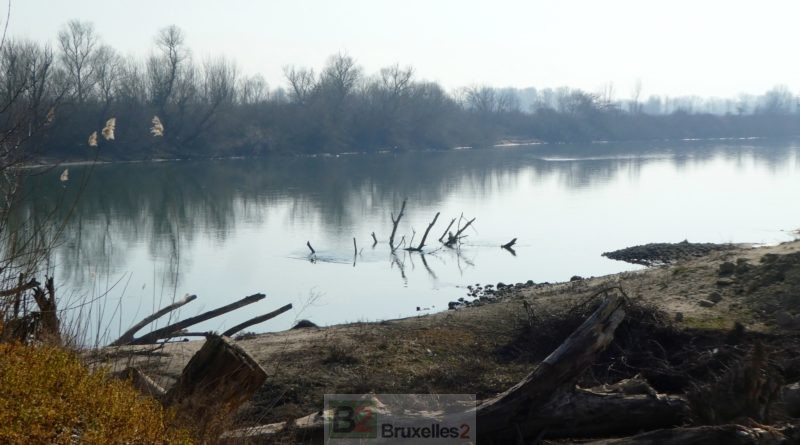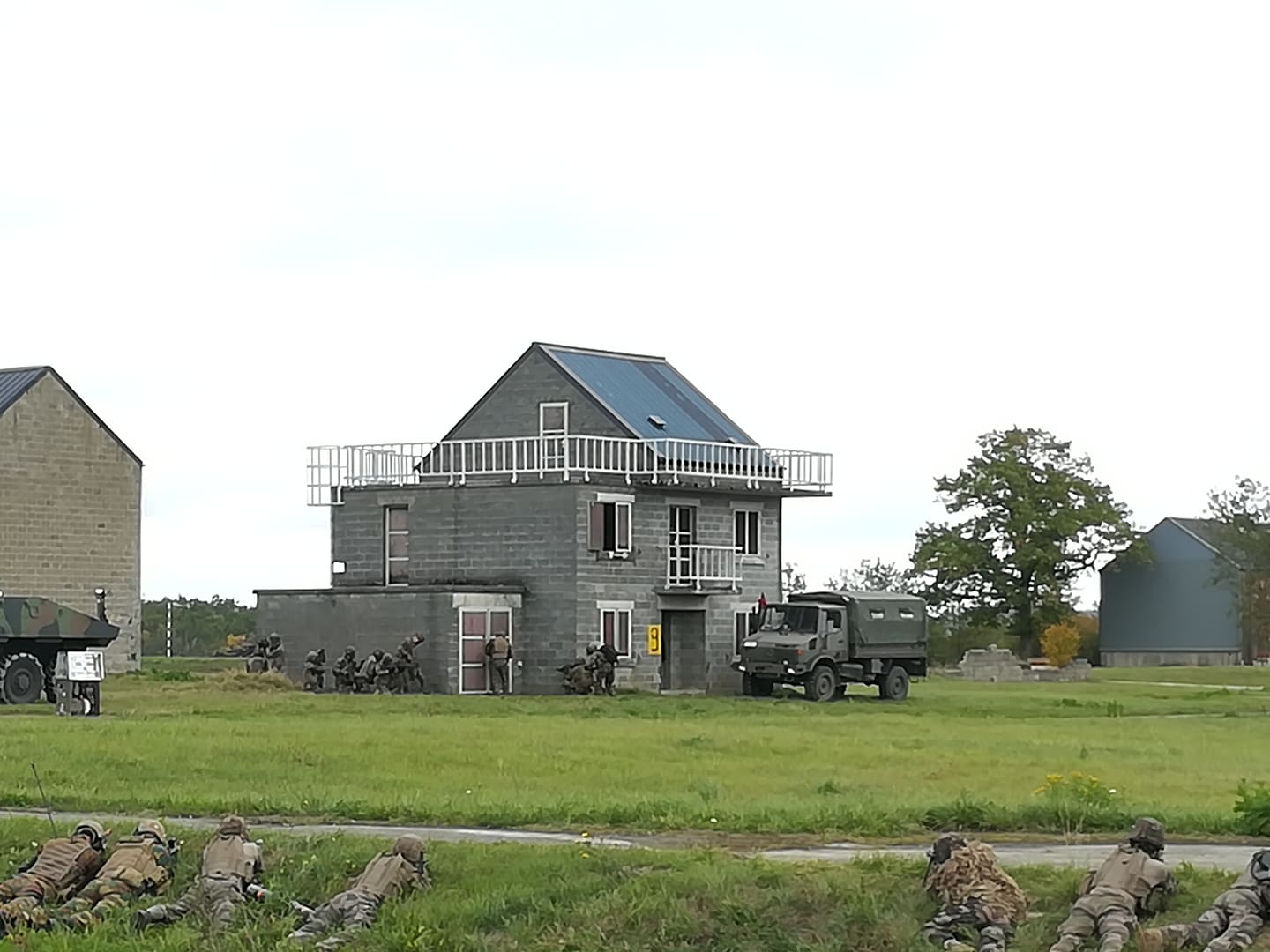[Evros, gateway to Europe 1] The Evros river, the other gateway for refugees
(B2 at the Greek-Turkish border) In the streets of Alexandroupolis, Sunday morning, silence prevails. It is the last big city before the border post between Greece and Turkey. The border is still far away. It follows the contours of the Evros River, better known by its Bulgarian name of Maritza, where it has its source, to throw itself, 150 km below, into the Aegean Sea. Nearly one in three refugees crossed it to reach Europe
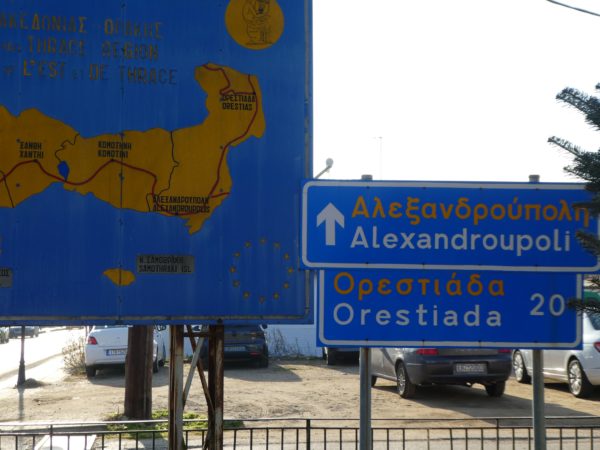
From Alexandroupolis, in the North-East of Greece, in the region of Thrace, the road spreads out and extends, deserted. The dull winter vegetation and the low sky of this January morning overwhelm the landscape. We try to see the Evros river. It is the land barrier for refugees trying to reach Europe without passports or visas. The frequency of these irregular passages varies according to the times. It has remained high since the jump between 2017 and 2018 when the number of land crossings tripled and crossed the 10.000 mark (see box). The route of the 'mainlands' remains an alternative to those of the islands.
First border post, Kipoi
Leaving the main road, the path narrows. The Evros river remains invisible, it flees. Nestled at the bottom of a vast valley. On the other hand, the row of trucks parked on either side of a barrier separating a path and the main road that we had abandoned indicates that we are approaching the border post of Kipoi. A few private cars line up in front of the guitoune of the Greek customs officers. The station takes just a few minutes. And then it's the other side, Turkey. A few tens of meters. This is not where visa-free refugees go.
150 km of river
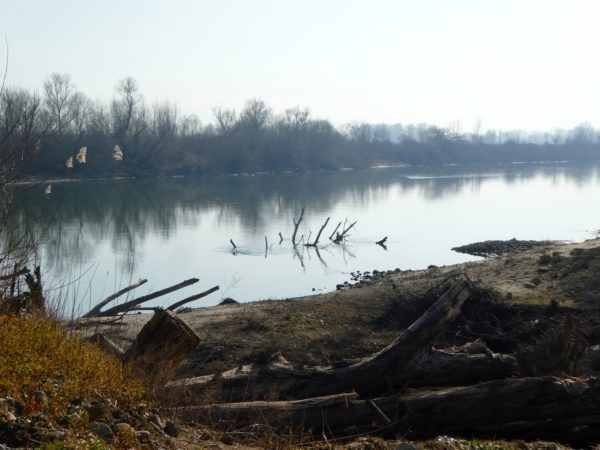
You have to go up again to find the Evros river, 29 km from Didymoteicho. To reach the bank, we take the dirt road of a construction site financed by Europe to fight against floods. The barking of a dog from the neighboring farm welcomes the curious. At the end of this rocky path, the river finally appears. The passage is indeed narrow. Easily passable for those who know how to swim. Access to both banks has been skated by the passages. On the opposite bank, a deflated boat dries the emaciated branches of a tree.
On the Greek side, clothes remain on the ground. Some food wrappers too. " People swim to reach the shore we were told. In other places, migrants use small boats. Some drown, are carried away by the current, testifies the ICRC (International Committee of the Red Cross) which assists families in the search for their missing relative may be there...
It's the smugglers who decide
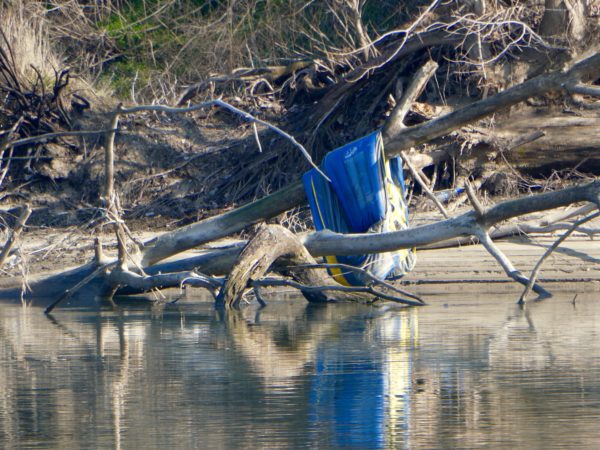
In the town of Didymoteicho, it is explained that migrants do not stay here. " They ask the police station if they haven't already been arrested ". Go to the police station to get registered and sent to accommodation, “ this is the recommendation they receive from smugglers confirm all the interlocutors. At the land border, the smugglers decide the timing. An official confirms: it is indeed paradoxical. But we all have in mind the story of refugees who ask the police to arrest them so that they can register ».
To get arrested
This is how in Thessaloniki, almost a three-hour drive away, we noted last year " a significant increase in people crossing the land border without being intercepted by the police”. Since then “They arrive in Thessaloniki, the main city in the region, to register as asylum seekers. And for that, either they go to Diavata camps near the city, or they get arrested by the police in town ". This is explained by the head of a large international organization.
Route plans
Some refugees have very detailed route plans, says an observer. He remembers that of an Afghan refugee, the most numerous to cross, with the Syrians and the Iraqis. " He had written down all the smuggler's instructions on a piece of paper: from the departure from his village in Afghanistan to his destination in Germany, he had the details city by city, starting in Iran, with the name of the person to see, etc ". There is obviously not just one road, but several. Fares change according to these routes, proportional to the risks of being intercepted. Despite a reinforced military presence on the border, the movements continue, “ it's quite surprising slips a diplomat.
The man, this commodity in the hands of smugglers
Without a passer, we do not pass. And... without the complicity of border guards, several well-informed interlocutors tell us. For these smugglers, the closure of the borders to the Balkans and the agreement signed between the European Union and Turkey in March 2016 was even a godsend. " Migrants take the same route as before, except that it has become toll since 2016 ". Refugees mention the price of three thousand dollars, the price to pay to pass, report humanitarian workers who have collected many testimonies. The smugglers play with the threats of opening the floodgates of Erdoğan. These threats remained threats » assures a diplomat, « but we see that some days, instead of ten entries per day, there are a hundred ».
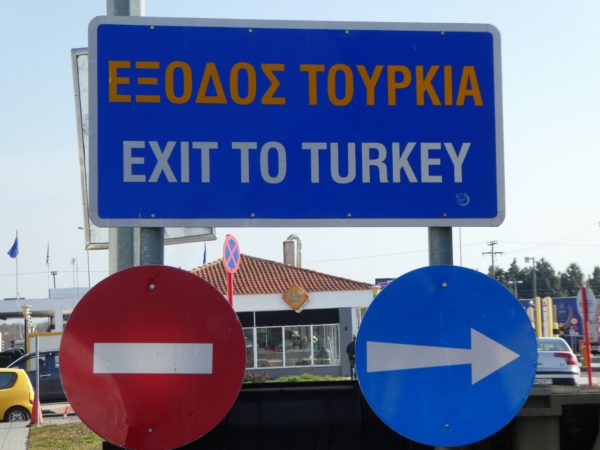
In the North-East, dead end in Kastanies
There is a second official land crossing point between Greece and Turkey. At the northern end of the Thracian region. Going up from Orestadia, along the main road, on the right, we see the silhouette of the great Mosque of the Turkish city of Edirne. The road gets narrower as you get closer to the village of 'Kastanies'. At the end of its street lined with small bistros, the barbed wire indicates that one cannot continue, except to pass the customs. Sesame to access the duty free shop that taunts the other side. On the Greek side, a long fence and barbed wire have been installed in the car parks and gardens of the houses adjoining the customs post. Paths still lead to the Evros river. The shore even seems to be a place of pleasure on sunny days. You have to go up the river to reach Turkey. Again, leftover clothes.
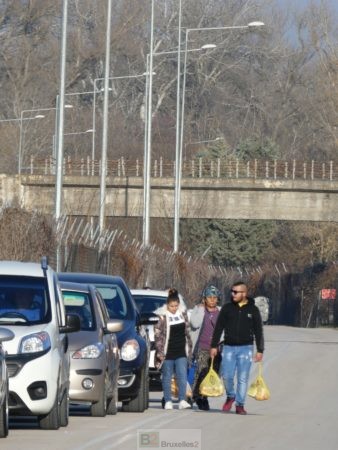
The flaws in the 'wall'
It is on these roads returning from Turkey that the Greek police presence is evident. Mobile patrols do not hesitate to intercept cars and vans. The French plate avoids us at the last moment to be controlled. Military jeeps also pass. Omnipresent we are told. Moreover, in the region, several barracks were used to receive refugees in the years 2011/2012.
Cooperation not possible
It is not the checks on the Greek side that will prevent the refugees from passing through, but the work on the Turkish side. But this is where the shoe pinches according to the Greek Minister for Migration and Asylum (read separate article). Frontex's support for the external management of Europe's borders seems limited to Turkish desiderata. As for knowing more about the effective reinforcements of Frontex, the question seems to be a state secret. " Our presence at the Greek land border is very limited and officers deployed by Frontex are not allowed to give interviews. You will also need to seek permissions for any media activity from the Greek authorities, as we operate under the authority of the host country “We had warned the press service. The agreement of the Greek authorities was also not granted to us.
(Emmanuelle Stoesser)
One in three entries
Greece recorded 36.310 entries in 2017 and 50.508 in 2018. This 34% increase is due to the resurgence of “ land crossings from Turkey to Greece », around 18.014 according to the Greek authorities. The number remained high in 2019. In September 2019, Frontex already recorded 10.000 irregular entries in the first six months of the year.
All the articles from our report [Evros, gateway to Europe]
- The Evros River, the other gateway for refugees to Europe
- Turkey is pulling the strings at the EU's external borders (G. Koumoutsakos)
- In Greece, the number of pending asylum applications explodes
- The reception and treatment of refugees under the pressure of the EU-Turkey agreement
- EASO will double its workforce in Greece
- UNHCR, guardian of the right to asylum, in a balanced position
- For MSF, the only crisis is that of a lack of political will
- Sharifi G. wanted to join his sister in Germany, he was imprisoned in Greece
